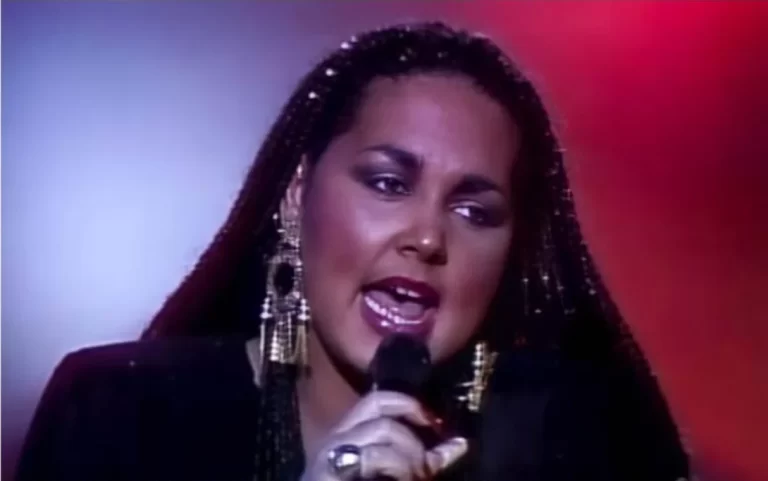
Liberty Silver Performing at the JUNO’s. Photo Credits: CBC News. Submitted by CARAS. ©
By Kenya Isaac
The Canadian Academy of Recording Arts and Sciences (CARAS) has reversed the decision to remove the reggae, gospel, and children’s categories. In a move that sent shock waves through the Canadian music industry and resulted in a weekslong debate, CARAS announced the removal of the categories in early September. In a letter obtained by the Canadian Press, it was stated that JUNO members were planning on placing the reggae, gospel, international, and children’s categories on “hiatus”. They have since reversed the decision and also announced the addition of two new categories including a songwriter and South Asian category.
The reasons behind the removals pointed towards declining streaming numbers and sales, repetitive submissions, and not enough ‘new faces’ as the driving factors for the decision. The organizations motives were immediately brought into question by leading music figures, especially in light of their previous 2024 JUNO’s message of diversity, equity, and inclusion.
The move was considered a PR nightmare considering the impact these genres have had on music in Canada. In 1985 the JUNO’s introduced the Reggae/Calypso Recording category with the first award given to Liberty Silver and Otis Gayle for track “Heaven Must Have Sent You”. Silver was a triple threat that night, also winning the first R&B/Soul Recording and was the first Black woman to win a JUNO Award. Controversy over the pairing of the two genres arose in the late 80’s with protests erupting to separate reggae and calypso into their own distinctions.
Denise Jones, who would become the founding Chair of the Reggae Category, championed for its separation and advocated for Black representation at the awards show. The influential community leader would posthumously be awarded the 2022 Walt Grealis Special Achievement Award at the 2022 JUNO Awards. Renowned music journalist and activist, Norman Otis Richmond, was also among those spearheading the movement. The calypso attachment was later dropped and the category became Best Reggae Recording in 1994.
Those nominated over the years have included greats like Jackie Mittoo, Leroy Sibbles, Exco Levi, Carla Marshall, Nana McLean, and Kirk Diamond. Many of these artists would go on to inspire other musicians in varying categories. The King of Baselines, Leroy Sibbles, would even provide background vocals and music for Bruce Cockburn’s famed Humans album, which now serves as a prime example of reggae’s influence on other Canadian music.
Already facing issues of erasure, the Little Jamaica community on Eglinton West saw the decision as yet another snub. Home to many Caribbean immigrants, Little Jamaica has fostered many hits from the reggae genre as it was home to countless musicians and recording studios. Musicians as big as Bob Marley frequented the area and it became one of the largest reggae producers outside of Jamaica.
The CBMA spoke with former Little Jamaica business owner and Canada’s Queen of Reggae, Nana McLean, on the JUNO’s unprecedented decision. McLean was “very saddened by this…we never give up, we just keep fighting, and then in the long run you’re still wondering why” she adds, “we need to talk, and I think we need room to talk.”
The artist noted that there is a separateness in the Black community and in order to prevent these erasures from happening again, individuals and organizations need to ban together. McLean has been nominated in the reggae category several times and won the 1997 JUNO Award for Best Reggae Recording.
The gospel category is another foundational genre for Black communities and is often what inspires many Black musicians to-be. Originally named Gospel Album of the Year until 2002, the genre then re-emerged as Contemporary Christian/Gospel Album of the Year in 2003. Since its introduction to the JUNO’s it has seen winners like the Toronto Mass Choir, K-Anthony, and the Montreal Jubilation Gospel Choir. Category judge Richard Picart told NOW Toronto that to remove these categories would be “culturally irresponsible”. Picart questioned the organization’s previous reasoning and wonders “what is the actual cost to the Academy for them to have this category?”
This would not be the first time the Canadian Black music industry has been cold-shouldered by the awards ceremony. Hip-hop and rap have fought for inclusion from the Academy since before the Best Rap Recording category was introduced in 1991. Hip-hop group the Rascalz, who won the JUNO Award for Best Rap Recording in 1998, refused it. In a statement read by the group’s manager at the time, Sol Guy, he announced: “Urban music, reggae, R&B and rap: that’s all Black music and it’s not represented at the JUNO’s. We decided that until it is, we are going to take a stance.” The rap category at the time was given out the night before the annual broadcast, much like the reggae category has been in recent years. The group’s stance on being relegated to the night before, sparked a larger conversation about the JUNO’s and the cultural significance of these genres across Canada. Despite musicians like Drake dominating the global scene, Black genres continue to feel isolated from the music community. They are often coined as the roots for rock, country, and many other notable genres, but are still not as celebrated among awards circles.
Last week CARAS announced the reversal of the controversial decision. The President and CEO of CARAS, Allan Reid, posted on social media last Wednesday that the Academy is no longer considering the removal of the Children’s Album of the Year, Reggae Recording of the Year and the Contemporary Christian/Gospel Album of the Year categories. Reid states “We remain dedicated to ensuring the JUNO Awards reflect industry excellence and is representative of the diversity of the Canadian music industry.”
The conversation continued when on Monday, September 23rd, it was announced that they would only be eliminating the International category, and merging Breakthrough Artist and Group of the Year into a single category. They also announced the addition of Songwriter of the Year (non-performing) presented by SOCAN and South Asian Recording of the Year awards. With the rise in popularity of South Asian music in Canada the addition “will celebrate recordings throughout the diaspora, supporting their tremendous growth and success.” These changes are meant to “reflect the evolution of the Canadian music scene.”
Some Canadian musicians, especially those in traditionally Black music genres, often face the choice of sticking it out in Canada or moving abroad to make it in the music industry. Any elimination of these genres only reinforces the latter as the only option. Thankfully they have reinstated these categories and added additional awards to the ceremony. The 2025 JUNO Awards will be held in Vancouver next March.
The Canada Black Music Archives is a non-profit digital archive established as a division of Word Media Group Inc.
contact us
124 - 639 Dupont St. Toronto, ON M6G 1Z4
sponsors and supporters
We are grateful for the support of the TD Bank Group, Province of Ontario, Government of Canada as well as our donors, members and volunteers.





